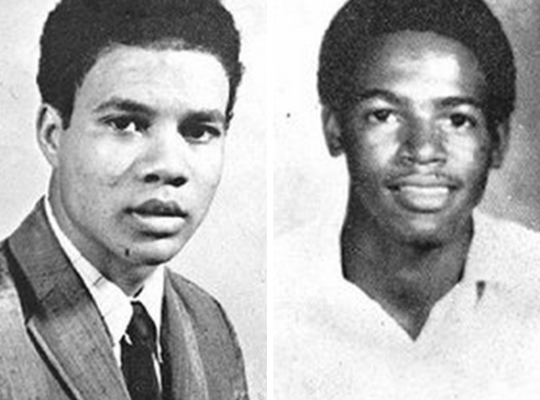Shootings at Jackson State College
May 14, 1970

Protests occur at Jackson State College and throughout Jackson, Mississippi over a host of issues, including the Vietnam War, the shootings at Kent State, general racial and social injustice, the draft, and local harassment of black students by white motorists. During the night, a boisterous crowd on campus and acts of vandalism draw local police and highway patrolmen to the scene. They do not wait for better-trained National Guard troops, who are on hand. The police and highway patrolmen open fire on a dormitory and crowd, killing two students and wounding 12.
Amid broader public discord in the wake of the Cambodian incursion, the tragedy at Jackson State demonstrates the complex links between the antiwar and civil rights movements. Events and demonstrations at Jackson State, Kent State, and many other campuses cause President Nixon to call for an independent commission to investigate instances of campus unrest.1
What historians say:
Compared to the Kent State University shootings, the violence at Jackson State College has left a less profound imprint on Americans’ memory of the Vietnam War. Historians posit that the reasons for this amnesia are that the perpetrators of the Jackson State Incident were local police officers and not national guardsmen, the victims were African American instead of white, neither of the persons killed were students of the college, and the Mississippi incident lacked an iconic image such as John Filo’s Pulitzer Prize-winning photograph of the female Kent State protestor kneeling over the body of one of the victims. Historians note that for many students at Jackson State College, the Vietnam War was a lesser cause for protest than was the racism endemic in Mississippi at the time.
Spofford, Tim. Lynch Street: The May 1970 Slayings at Jackson State College. Kent: Kent State University Press, 1988.